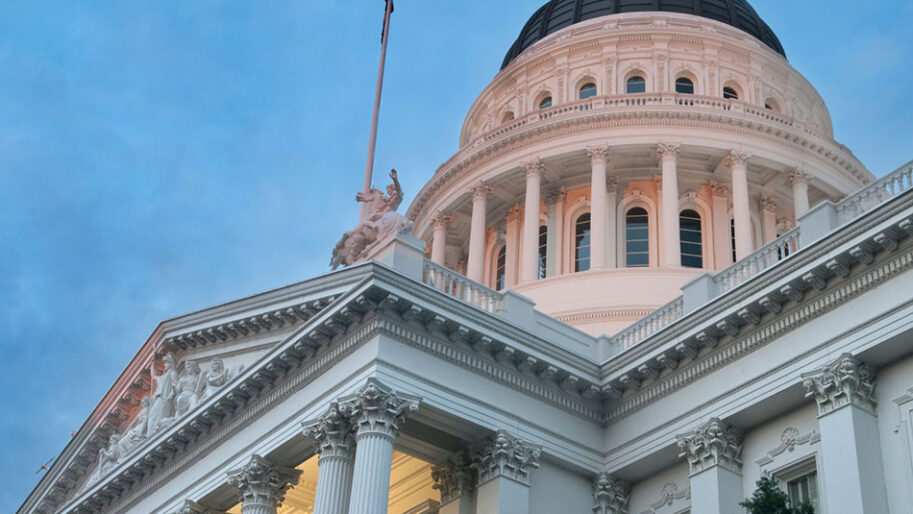In the movie Machete, Jessica Alba’s character Sartana Rivera says the line, “We didn’t cross the border, the border crossed us.” Though this movie was released in 2010, it was a phrase I heard often growing up, as politics was a part of the conversation at the kitchen table, given my family’s long history of service to the United States.
In 1994, when I was a teenager, Proposition 187 was put on the ballot in California. The initiative was introduced by Republican Assemblyman Dick Mountjoy and sponsored by Republican Governor Pete Wilson. Prop 187 sought to deny undocumented immigrants access to public services, including healthcare and education, and required state and local government officials to report suspected undocumented immigrants to federal authorities. The initiative was widely controversial and sparked significant protests and legal challenges. Its passage ultimately led to a decline in Republican support among Latino voters in California, while also contributing to a rise in anti-immigrant sentiment. It was also the first time I felt that politicians put me in danger because of the color of my skin. I realized then as a Californian who could not yet vote that if I wasn’t at the table, I was on the menu.
In college at U.C. Berkeley, I was excited to become a registered voter and participated in my first Get Out the Vote (GOTV) organizing drive. My time at Berkeley provided a foundation of critical thinking and the opportunity to learn from a variety of perspectives. From these key moments in my young life, I have led a life dedicated to young people, communities of color, and women’s rights. I’m proud to have worked for leaders like the incomparable Speaker Nancy Pelosi and am thrilled to lend my advocacy and relationship-building skills to The Climate Center. As such, I’ve compiled some of my top tips for being an effective advocate.
Climate change is a global problem, and California is a key player in the fight against it. However, with powerful interests vying for attention in Sacramento, it can be challenging to ensure that the interests of the public and the planet are represented. Effective climate lobbying is the key to ensuring that the voices of concerned citizens are heard in the halls of power. Below are some strategies for lobbying:
- Research and preparation: The first step to effective lobbying is to know what you are lobbying for. Research the issues, the proposed legislation, and the lawmakers who will be voting on it. Use this information to prepare persuasive arguments that anticipate objections and concerns.
- Build relationships: Building relationships with lawmakers is crucial to effective lobbying. Schedule a meeting with the lawmaker to introduce yourself and learn about their interests and priorities. You should also have a strong idea of what these are through reading their campaign website and news articles that feature their quotes or profiles. This allows you to tailor your messaging to better resonate with them. Regular communication with lawmakers helps build trust and increases the likelihood of successful lobbying efforts.
- Use data and research: Make sure to back up your arguments with data and research. This can include statistics on the environmental and economic impacts of climate change, as well as the benefits of proposed legislation. Be well-informed and prepared to make a compelling case for the legislation you are advocating for.
- Be persistent: Lobbying can be a long and challenging process, but it is important to remain persistent. Follow up with lawmakers after meetings, provide additional information and research, and continue to advocate for legislation even if it does not initially succeed. Persistence is key to achieving goals and making progress towards addressing climate change.
- Build a coalition: Building a diverse coalition of individuals and organizations who share your values and goals is a powerful way to advocate for climate legislation. Work closely with other climate advocates to build a coalition that can provide different perspectives and expertise. This helps to strengthen your messaging and increase the impact of your advocacy efforts.
- Join advocacy groups: Joining an advocacy group can be a great way to make your voice heard. Groups like The Climate Center work tirelessly to advance climate policy in California, and they need your support to be successful. Advocacy groups can provide information and resources that can help you effectively lobby lawmakers.
In closing, let us remember that the fight against climate change is a collective effort, and every action we take matters. By raising our voices, building coalitions, and persistently advocating for meaningful change, we can make a difference. Let us continue to work together towards a more sustainable future for our planet, for California, and for all who call it home.
